Phonics Skills Letter Sounds Worksheets for 4-Year-Olds
6 filtered results
-
From - To
Enhance your child's phonics skills with our engaging Letter Sounds Worksheets, specifically designed for 4-year-olds. These worksheets offer a fun and interactive way to introduce young learners to the sounds associated with each letter of the alphabet. Packed with vibrant images and simple activities, your child will enjoy connecting letters to words while building essential early reading skills. Perfect for both classroom settings and at-home learning, our resources support phonetic awareness in a delightful manner, setting a solid foundation for literacy development. Discover how these worksheets can make learning phonics enjoyable and effective for your little one!
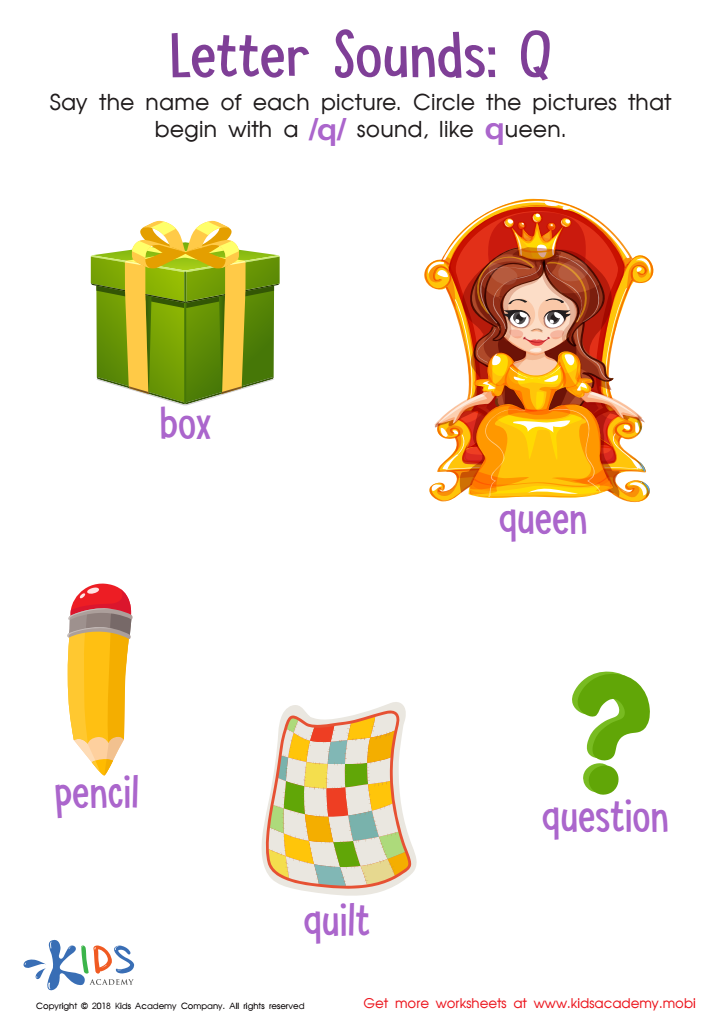

Letter Q Sounds Worksheet
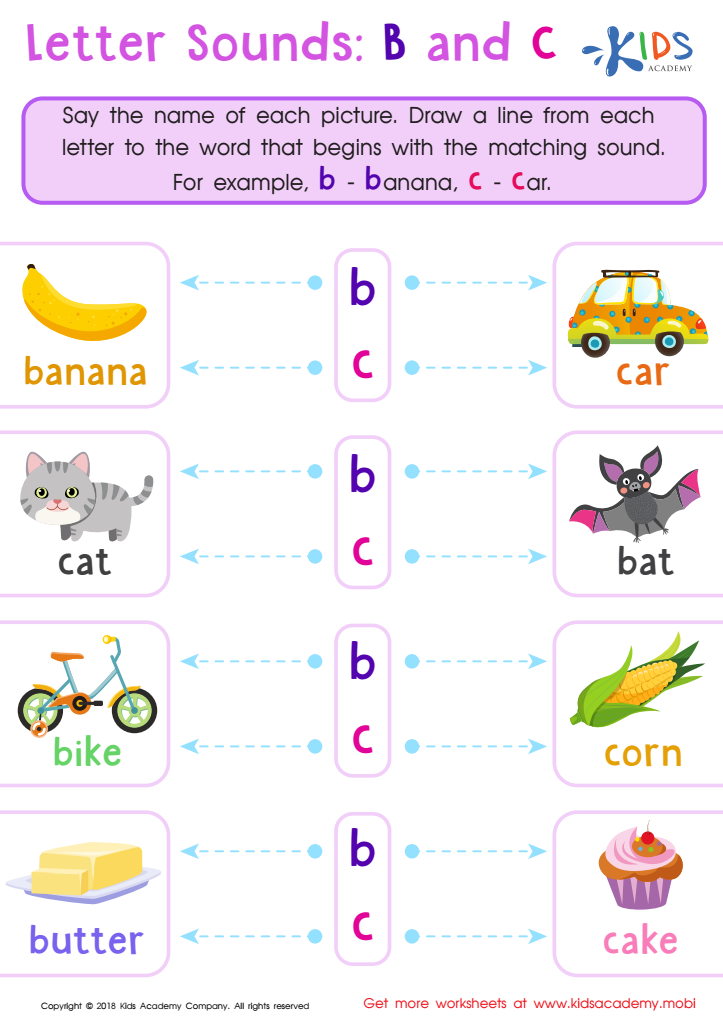

Letter B and C Sounds Worksheet
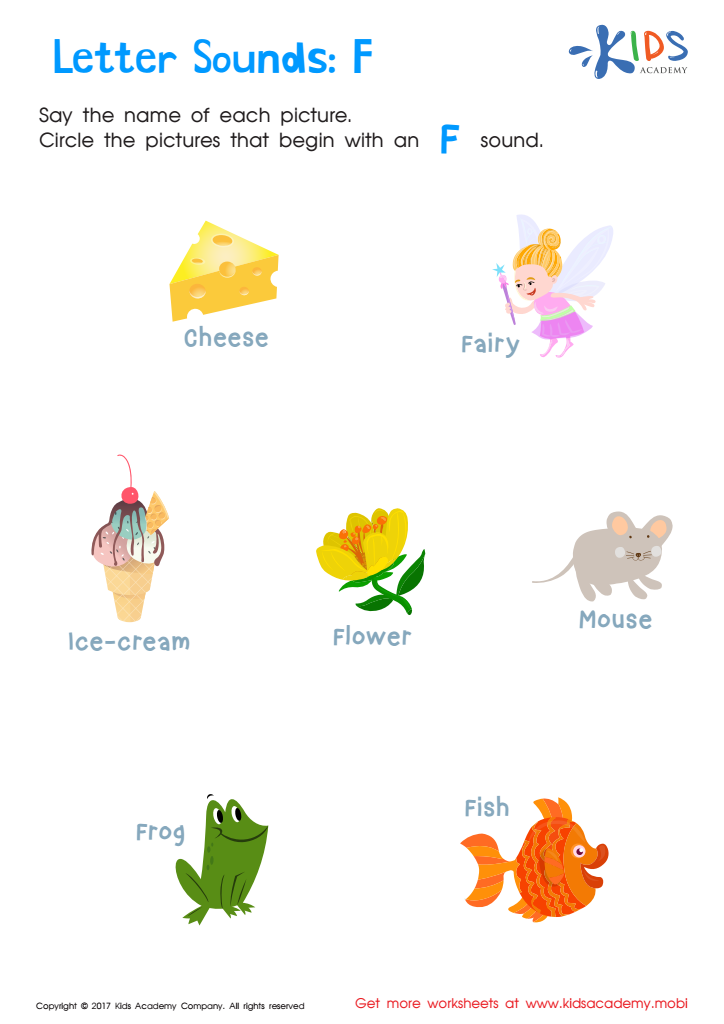

Letter F Sounds Worksheet
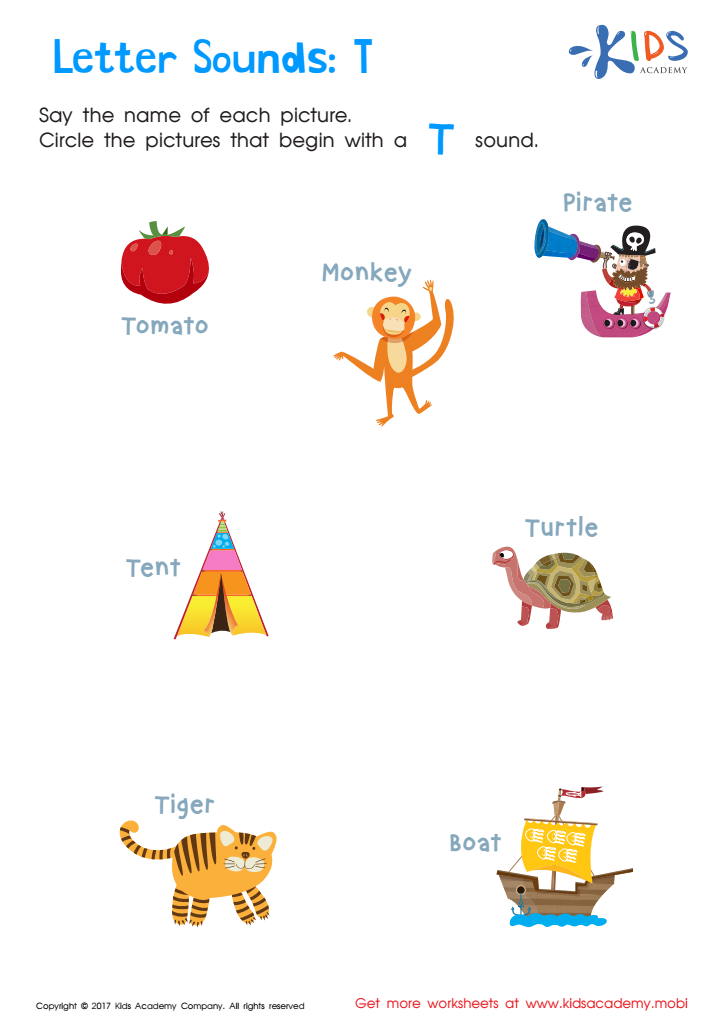

Letter T Sounds Worksheet
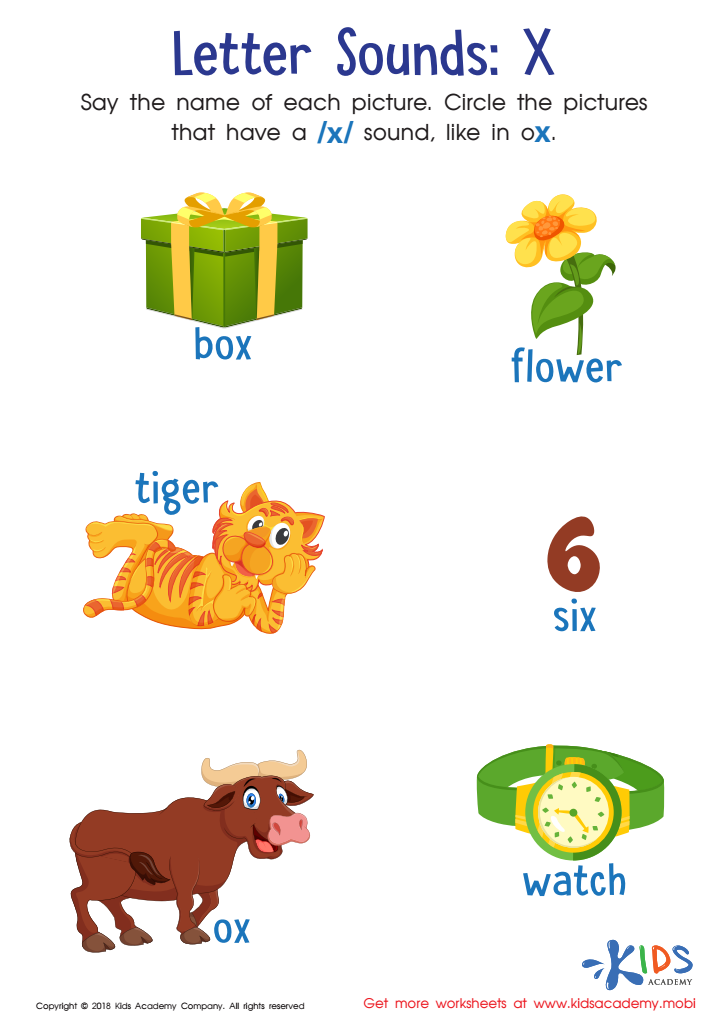

Letter X Sounds Worksheet
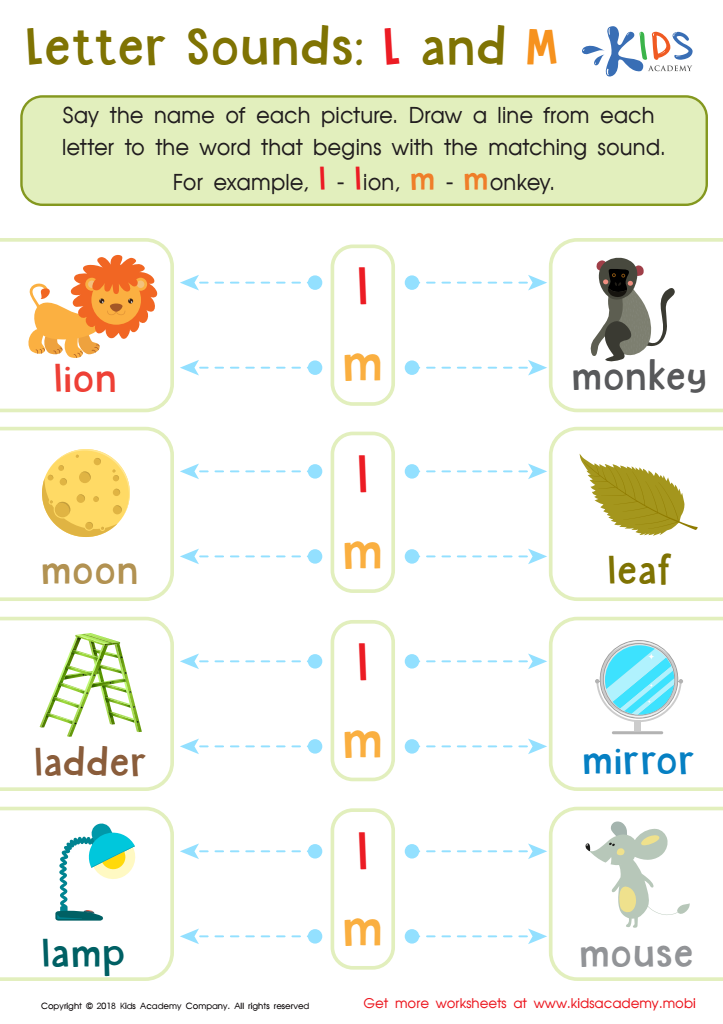

Letter l and M Sounds Worksheet
Phonics skills, particularly letter sounds, are crucial for the literacy development of 4-year-olds. Understanding phonics plays a foundational role in reading and writing, allowing children to connect sounds with their corresponding letters. This connection is essential for building vocabulary and fostering comprehension. By focusing on letter sounds, parents and teachers can help young learners develop strong decoding skills that enable them to recognize words more easily when they encounter them in print.
At this age, children are naturally curious and eager to explore language. Fostering phonics skills aligns with their developmental stage, promoting a love for reading and learning. Engaging young learners in activities like rhyming games, sound identification, and letter recognition can create a stimulating environment that encourages literacy exploration.
Moreover, children who develop phonics skills early are often more confident in their reading abilities, which can impact their overall academic success. Teachers and parents should care about phonics because it not only lays the groundwork for effective reading but also enhances communication, literacy skills, and critical thinking, setting the stage for lifelong learning and achievement. Investing in phonics education for 4-year-olds ultimately fosters a generation of confident readers and learners.

 Assign to My Students
Assign to My Students




















